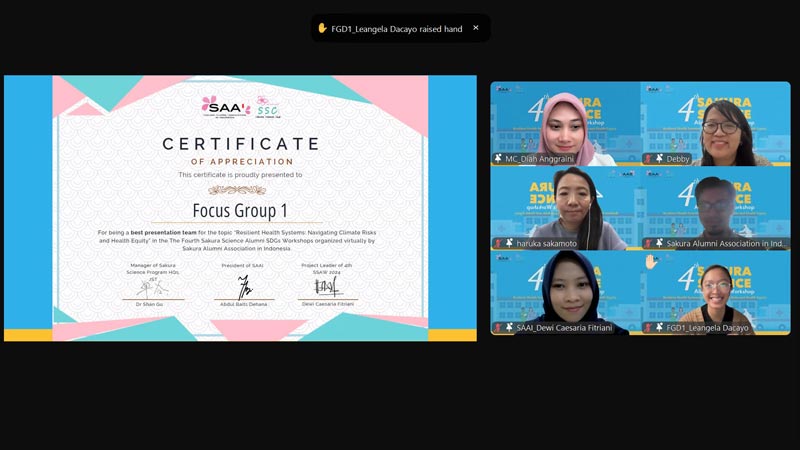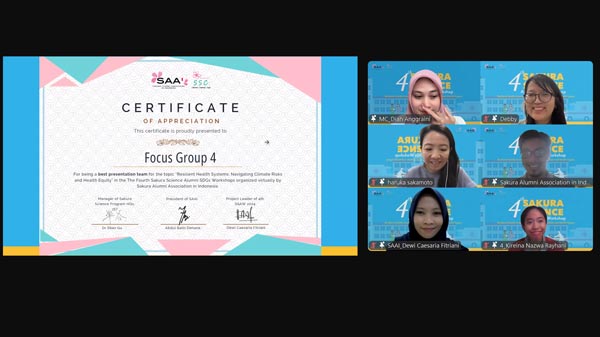Events
SDGs Workshop 2024 for Sakura Science Alumni Marks Another Accomplishment─Report from SAAI
Between August and September 2024, the Sakura Alumni Association in Indonesia (SAAI) successfully organized a series of online programs—the Third, Fourth, and Fifth Sakura Science Alumni SDGs Workshops—under various themes addressing contemporary global challenges. These workshops engaged hundreds of international alumni from the Sakura Science Program (SSP) network across more than 20 countries, with insightful contributions from renowned experts in academia, industry, and policy.
Each workshop lasts for two days. On Day 1, participants get to learn from experts, with Q&A opportunities. At the end of Day 1, potential discussion topics for Day 2 are proposed by the organizers. On Day 2, participants come back together for the FGD (Focus Group Discussion). After the discussion, a spokesperson from each group will present the conclusion and get feedback from the expert speakers. At the very end of Day 2, groups that made remarkable presentations will be chosen and awarded. To enable a cosy yet substantial discussion, the number of slots for each workshop is usually limited to 60. Participants who complete the whole two-day program will receive an e-certificate. The First and Second workshop were conducted in 2023.
<The Third Sakura Science Alumni SDGs Workshop (August 10-11, 2024)>
Theme: “Just Energy Transition: The Ending Era of Fossil Fuels?”
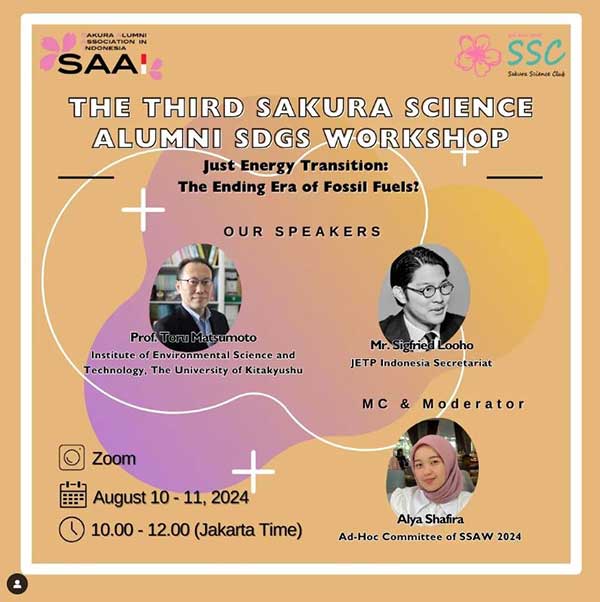
This workshop explored the critical topic of transitioning from fossil fuels to renewable energy in light of the ongoing climate crisis. With over 300 registrants, it sparked high enthusiasm from the international alumni community.
The event featured two esteemed speakers. Prof. Toru Matsumoto, Professor at the Institute of Environmental Science and Technology at The University of Kitakyushu, presented on the concept of just energy transition. Prof. Matsumoto, a leading figure in the International Society of Industrial Ecology (ISIE) and various environmental organizations in Japan, provided an academic perspective on the societal and environmental benefits of transitioning to renewable energy.
The second speaker, Mr. Sigfried Looho from the Just Energy Transition Partnership (JETP) Secretariat and policy executive at TBS Energi, Indonesia’s leading sustainable energy company, discussed the investment and policy frameworks necessary to support the transition. He emphasized the importance of regulatory innovation and sustainable finance in achieving energy goals.
The webinar and subsequent FGD sessions were highly interactive, encouraging participants to reflect on the role of international cooperation in achieving a fair energy transition for all.
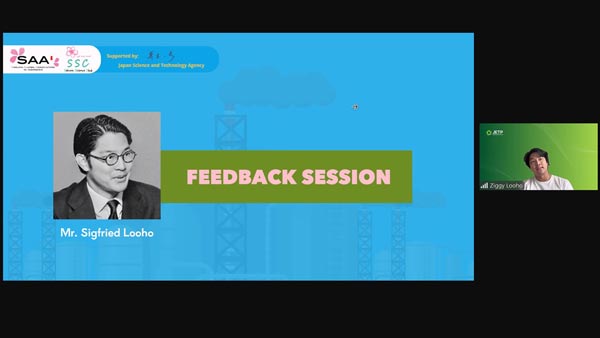
Photo: SAAI
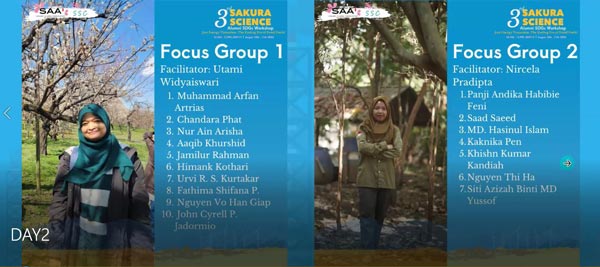
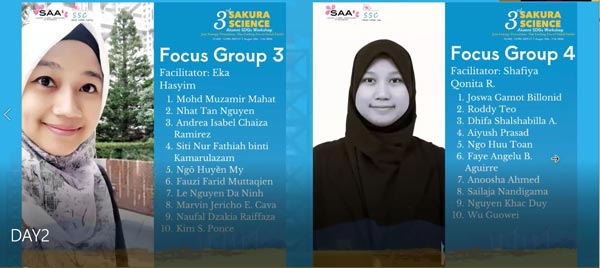
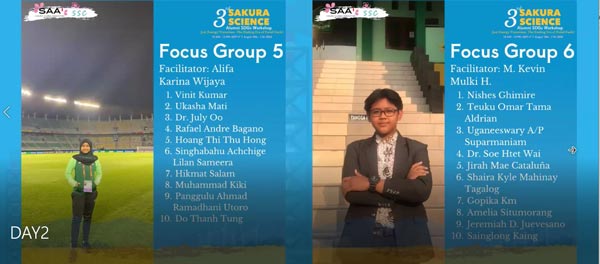
Photo: SAAI
<The Fourth Sakura Science Alumni SDGs Workshop (August 24-25, 2024)>
Theme: “Resilient Health Systems: Navigating Climate Risks and Health Equity”
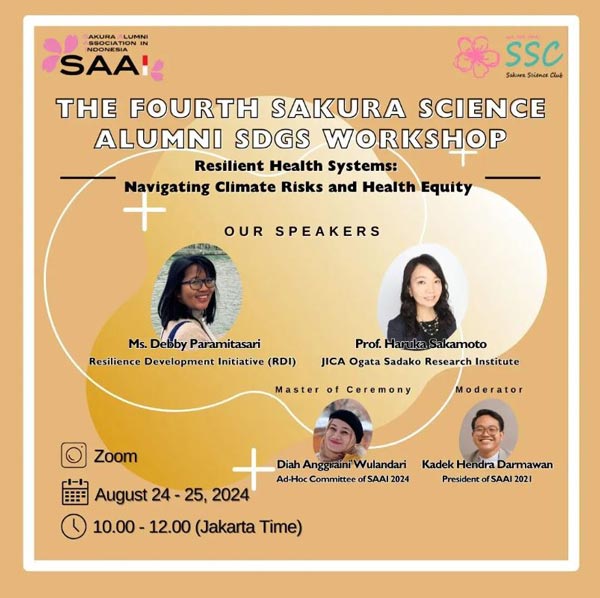
This workshop emphasized the pressing need for health systems that are resilient to climate change and capable of ensuring equitable healthcare access in the face of global crises. With over 250 registrants from over 20 countries, the discussions revolved around building sustainable healthcare systems that can withstand the impacts of climate-related disasters.
Two key speakers led the discussions. Ms. Debby Paramitasari, Programme Officer for Children, Social Welfare & Health (CSWH) at the Resilience Development Initiative (RDI), shared her expertise on resilient health systems, highlighting the need for preparedness and collaboration in the face of crises. Her experience in public health, disaster management, and occupational health enriched her discussion on the intersection of health and disaster preparedness.
Assoc. Prof. Sakamoto Haruka, Visiting Fellow at the JICA Ogata Sadako Research Institute spoke next. She is an expert in public health, and provided insights into how Japan’s healthcare system is adapting to the challenges posed by climate change. She emphasized that international cooperation is crucial in ensuring low- and middle-income countries to secure the resources and support necessary for building resilient and equitable health systems, whenever these countries are disproportionately affected by climate-related health risks.
The workshop highlighted the critical need for collaborative international efforts to share best practices, foster innovation, and ensure inclusive health policies that are adaptable to global contexts.
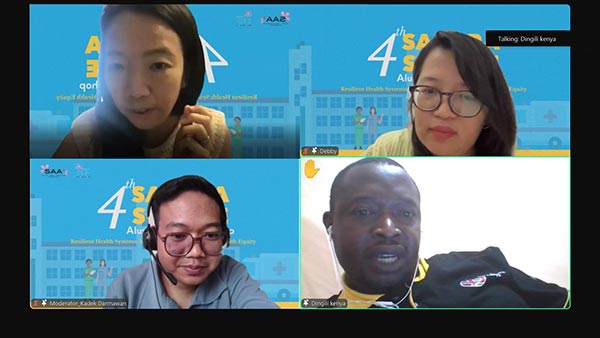
Photo: SAAI
Photo: SAAI
<The Fifth Sakura Science Alumni SDGs Workshop (September 28-29, 2024)>
Theme: "Digitalizing Education for All: Global Innovations for Resilient Learning"
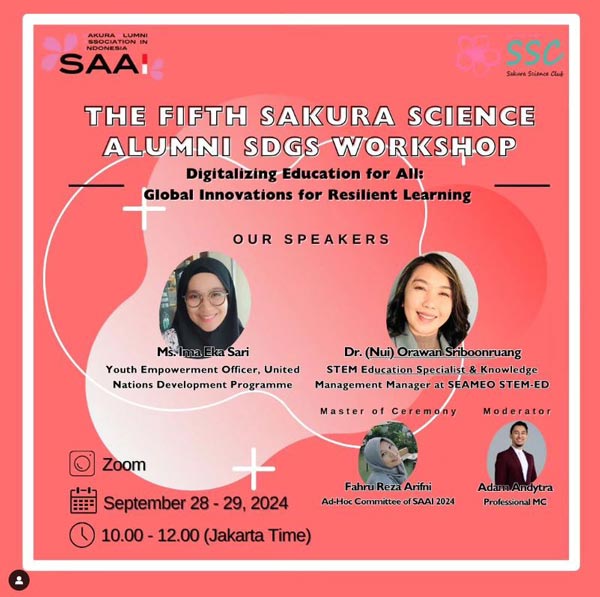
This workshop focused on the role of technology in building resilient education systems capable of withstanding disruptions and ensuring continuity in learning. With approximately 220 participants from over 20 countries, the event explored how emerging technologies can help maintain quality education, especially during crises.
Dr. Orawan Sriboonruang, STEM Education Specialist and Knowledge Management Manager at SEAMEO STEM-ED (Southeast Asian Ministers of Education Organization, Regional Centre for STEM Education), spoke on the importance of resilient education in a rapidly evolving world. She emphasized that resilient education systems must involve robust technological infrastructure and active community participation to withstand crises, whether natural disasters or global pandemics. Dr. Orawan is also the President of Sakura Science Club Thailand.
Ms. Ima Eka Sari from UNDP Indonesia expanded on the role of digital tools in fostering equitable education access. She discussed how artificial intelligence (AI) and data analytics can transform learning environments, creating adaptive and personalized learning experiences that enhance system resilience and ensure no learner is left behind, even in times of crisis.
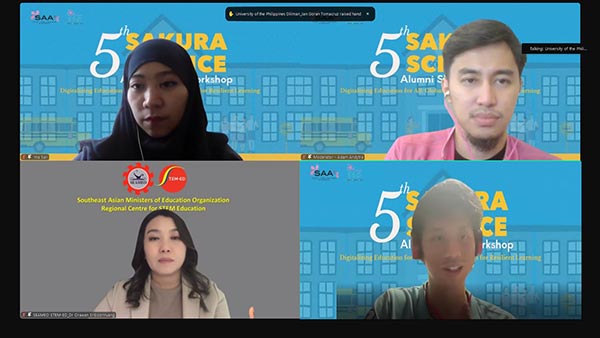
Photo: SAAI
Participants in the FGD session discussed emerging trends and technologies in education, reflecting on how institutions can prepare for and adapt to these changes. The importance of anticipating technological advancements and ensuring digital equity emerged as key themes in building future-ready, resilient education systems.
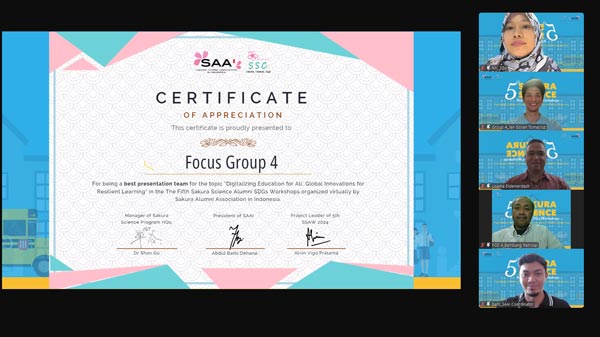
Photo: SAAI
<Conclusion>
The 2024 series of Sakura Science Alumni SDGs Workshops facilitated cross-border collaboration, knowledge sharing, and in-depth discussions on critical global issues. From energy transitions to resilient health systems and education, these workshops offered a platform for international cooperation, fostering innovative solutions to contemporary challenges. These workshops demonstrated the importance of global solidarity and cooperation in achieving sustainable, equitable, and resilient systems across multiple sectors.
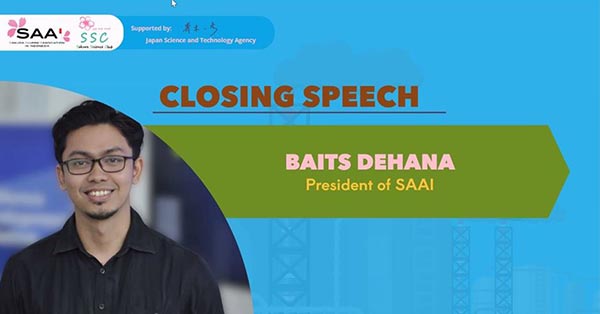
Photo: SAAI








